Revisiting Gender Roles in the Bible--5 Books
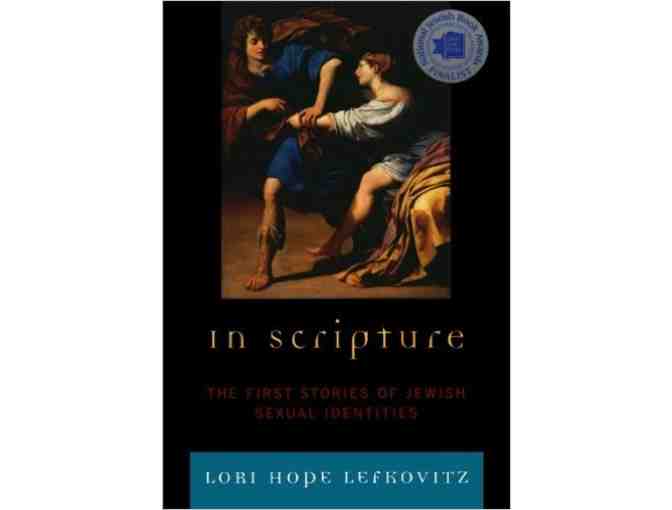
Item Number: 198
Time Left: CLOSED
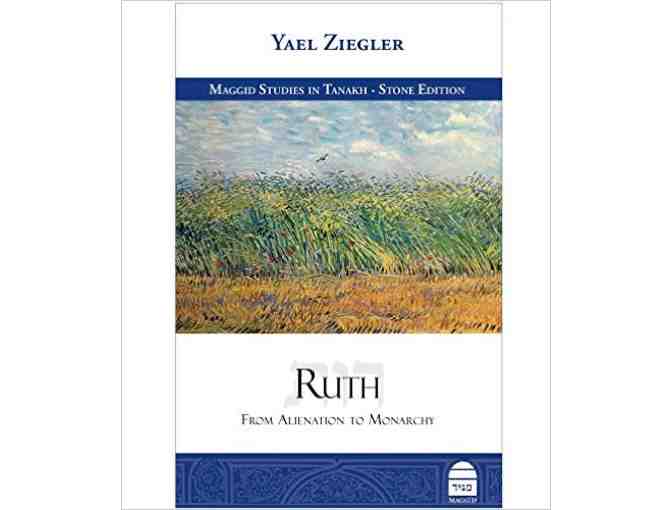
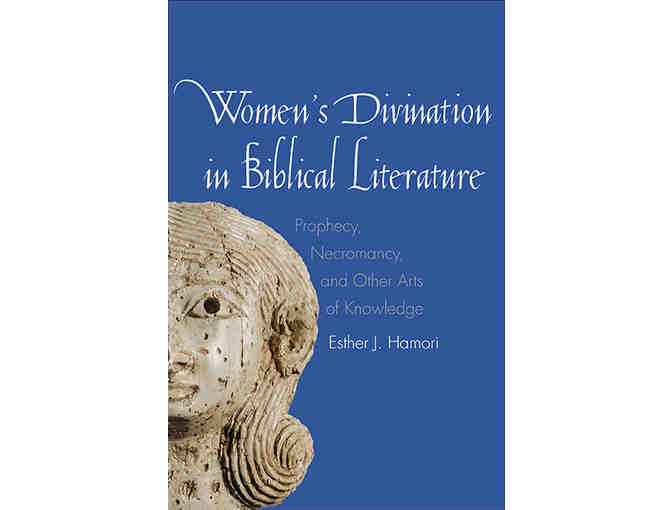
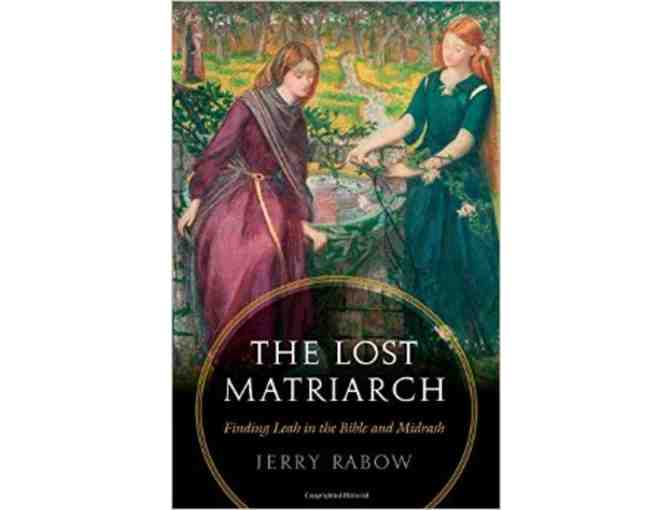
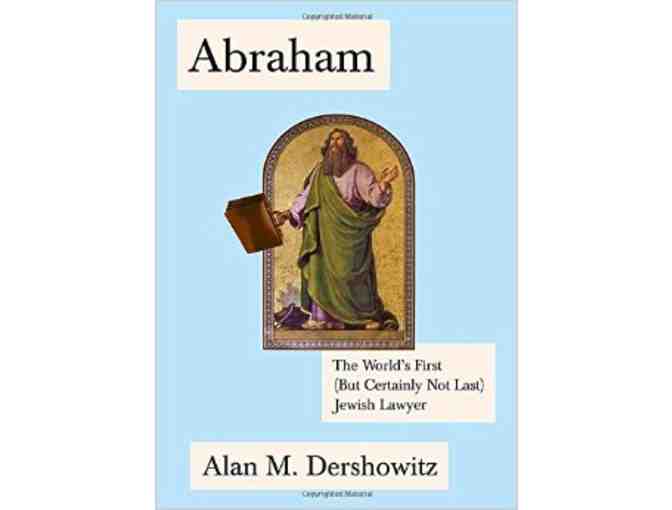
Description
In Scripture: The First Stories of Jewish Sexual Identities, by Lori Hope Lefkowitz.
Exegesis or eisegesis, do we draw meaning from the text or do we add meaning based on our own experiences, prejudices, and knowledge? This question is one we must consider when reading Dr. Lefkovitz’s book on gender roles in the Hebrew Bible. The Bible does not shy away from sexuality in either its stories ormitzvot and certainly reflects a point of view of a culture and a time.
Lefkovitz brings to the text a feminist, gender- based, psychoanalytical analysis which imposes upon the Biblical stories new meanings of sexuality through the lens of modern life. Her work represents a thoughtful and full exploration of several familiar stories beginning with Eve in the Garden and includes such well-known characters as Miriam and Joseph, explored in a new light of sexuality and gender identity. The story of seduction in the Garden has been well commented on, but Lefkovitz adds new layers of sexual meaning to the serpent as a phallic symbol. In a post-Freudian world it is difficult to interpret the serpent image otherwise, but are we imposing our interpretation or drawing out an interpretation? Are there undertones of homosexuality in the Joseph story, or does the beautiful Joseph escape Potiphar’s wife because he realizes the consequences of acting on impulse?
Interesting questions to ponder or refute in this challenging read of evolving sexual identity in Jewish texts.
The Lost Matriarch: Finding Leah in the Bible and Midrash, by Jerry Rabow.
The Lost Matriarch offers a unique response to the sparse and puzzling biblical treatment of the matriarch Leah. Although Leah is a major figure in the book of Genesis, the biblical text allows her only a single word of physical description and two lines of direct dialogue. The Bible tells us little about the effects of her lifelong struggles in an apparently loveless marriage to Jacob, the husband she shares with three other wives, including her beautiful younger sister, Rachel. Fortunately, two thousand years of traditional and modern commentators have produced many fascinating interpretations (midrash) that reveal the far richer story of Leah hidden within the text.
Through Jerry Rabow s weaving of biblical text and midrash, readers learn the lessons of the remarkable Leah, who triumphed over adversity and hardship by living a life of moral heroism. The Lost Matriarchreveals Leah s full story and invites readers into the delightful, provocative world of creative rabbinic and literary commentary. By experiencing these midrashic insights and techniques for reading between the lines, readers are introduced to what for many will be an exciting new method of personal Bible interpretation.
Women's Divination in Biblical Literature: Prophecy, Necromancy and Other Arts of Knowledge, by Esther J. Hamori.
Divination, the use of special talents and techniques to gain divine knowledge, was practiced in many different forms in ancient Israel and throughout the ancient world. The Hebrew Bible reveals a variety of traditions of women associated with divination. This sensitive and incisive book by respected scholar Esther J. Hamori examines the wide scope of women’s divinatory activities as portrayed in the Hebrew texts, offering readers a new appreciation of the surprising breadth of women’s “arts of knowledge” in biblical times. Unlike earlier approaches to the subject that have viewed prophecy separately from other forms of divination, Hamori’s study encompasses the full range of divinatory practices and the personages who performed them, from the female prophets and the medium of En-dor to the matriarch who interprets a birth omen and the “wise women” of Tekoa and Abel and more. In doing so, the author brings into clearer focus the complex, rich, and diverse world of ancient Israelite divination.
Ruth: From Alienation to Monarchy, by Yael Ziegler.
In this fluent and penetrating study of the Book of Ruth, Yael Ziegler provides a masterful primer on how to read biblical narratives with sensitivity and depth, using recent methodological breakthroughs in the study of Tanakh. Beyond providing an eye-opening reading of a familiar biblical book, the author creatively demonstrates that midrashic readings can reveal deep strata of textual meaning, and combines these insights with classical and contemporary scholarship to uncover the religious messages of this beautifully crafted story. In Ruth: From Alienation and Monarchy, modern techniques of literary analysis and rabbinic homilies merge to yield common insights into themes such as leadership, redemption, identity, and social morality.
The Book of Ruth, with its focus on the exemplary behavior of Ruth and Boaz, stands at the crossroads between society s downward trajectory during the era of the Judges and its ascent during the era of the monarchy. It teaches the timeless lesson of how two individuals can act in accordance with their own conscience and, through small acts of kindness and humanity, change the course of history and restore hope and unity to a nation.
Abraham: The World's First (But Certainly Not Last) Jewish Lawyer, by Alan M. Dershowitz.
One of the world’s best-known attorneys gives us a no-holds-barred history of Jewish lawyers: from the biblical Abraham through modern-day advocates who have changed the world by challenging the status quo, defending the unpopular, contributing to the rule of law, and following the biblical command to pursue justice.
The Hebrew Bible’s two great examples of advocacy on behalf of problematic defendants—Abraham trying to convince God not to destroy the people of Sodom, and Moses trying to convince God not to destroy the golden-calf-worshipping Children of Israel—established the template for Jewish lawyers for the next 4,500 years. Whether because throughout history Jews have found themselves unjustly accused of crimes ranging from deicide to ritual child murder to treason, or because the biblical exhortation that “justice, justice, shall you pursue” has been implanted in the Jewish psyche, Jewish lawyers have been at the forefront in battles against tyranny, in advocating for those denied due process, in negotiating for just and equitable solutions to complex legal problems, and in efforts to ensure a fair trial for anyone accused of a crime.
Dershowitz profiles Jewish lawyers well-known and unheralded, admired and excoriated, victorious and defeated—and, of course, gives us some glimpses into the gung-ho practice of law, Dershowitz-style. Louis Brandeis, Theodor Herzl, Judah Benjamin, Max Hirschberg, René Cassin, Bruno Kreisky, Ruth Bader Ginsburg, and Irwin Cotler are just a few of the “idol smashers, advocates, collaborators, rescuers, and deal makers” who helped to change history. Dershowitz’s thoughts on the future of the Jewish lawyer are presented with the same insight, shrewdness, and candor that are the hallmarks of his more than four decades of writings on the law and how it is (and should be!) practiced.
Special Instructions
A $7.50 charge will be added for shipping and handling to any USA address. Inquire about shipping outside the USA.